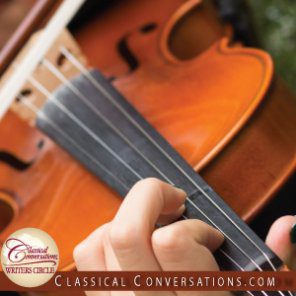My wife Catie has always known me to care about music. In the time we have been married she has seen me care about music in ways that are good and in ways that are not so good. She has watched me grow in both my passion for and study of music, and I confess that I will often talk Catie’s ear off when it comes to what I am learning and reading. Many times it helps me process my own thoughts. She jokingly accuses me of using her as a test dummy for what I am learning, and I admit there is some truth to that. Okay, maybe there is a lot of truth to it. But even through all our conversations, the books we read, the articles I send her, and all the “brilliant” points I have made about music’s importance for our humanity and for the corporate worship of God’s people, she admitted something to me only recently. She told me that despite all of our conversations and my “convincing” points, she had struggled for years to care about music and see its significance.
Catie was proud that I had found my passion and was happy that I cared so much about music and its importance. And at the same time she thought, “Music is his passion—not mine!” I asked her when she thought her perception changed or began to change. She answered that it happened slowly over time and that her change in perception came from experiences both in corporate worship with God’s people and also as she sang with our children. To be honest, it really had little to do with my influence. My wife does a fine job singing to our two daughters. Whether it is before bed, during our family devotions, or doing chores around the house, singing is an active aspect of our household. I thought this was interesting. Does experiencing music help us see more of music’s virtue compared with talking and reading about music?
As I looked back at my own experiences, I came to realize that my passion for music was not necessarily brought on by lectures, articles, books, authors, and provocative points about the wonderful gift of music. I am sure those helped, but they were not what drove my desires. What drove my desires and affections toward music were my actions in doing music. And this is what my wife came to realize about her own affections towards music. She had a good “worldview” for music and could spit out points and arguments for why music was important and why Christians should care about music more than they do. But she herself did not feel like she believed what she knew to be true until she spent more time doing music. It was the time she spent singing with her daughters around the house and before bed. It was the time she spent with her family singing hymns and psalms during devotions. It was the time she spent with her church family in corporate worship praising God in the most intimate act of fellowship humans experience with Trinity. These are the times where Catie’s passion for music grew. But why is this important?
I confess that too often I have talked or written about music without the commitment of doing music. Perhaps talking about music is easier for us than doing it. Just like listening to a good sermon on prayer is far easier than cultivating a better prayer life, so hearing or talking about music is easier than actually doing music. In addition, we live in a culture that makes it hard to see the benefits of music done well. Our families need to be singing together and doing it often. There is good reason why the Bible gives so much attention to music and the singing of God’s people. There is a reason why a whole book of the Bible was written for the singing of God’s people. Singing is inextricably linked to our sanctification and is also a means by which God works His redemption in the world. Could it be that our failure to do music well is a faith issue?
Do we have faith that when God tells us to be filled with the Spirit by singing in Ephesians 5, that he actually means for us to do it? This is a powerful passage. Ephesians chapter five is Paul’s exhortation to the church in Ephesus to be filled with the Spirit within the context of sanctification. And while we know that being filled with the Spirit causes us to sing praises to God, Paul also says that by singing psalms, hymns, and spiritual songs, we are then filled with the Spirit. Here, singing appropriate songs (psalms, hymns, and spiritual songs) becomes the means for our sanctification when we do it by faith. But do we believe this? If we did, would we not be more of a singing people?
In conclusion, it must be noted that our pursuit of doing music must be accompanied by the pursuit of doing music well. It is not enough to only be active in music without caring about the lyrical and musical content of what we are singing or playing. And this is perhaps the harder task. The famous quote attributed to St. Augustine Qui contat bene orat bis does not translate “Whoever sings, prays twice.” Rather, the quote translates correctly, “Whoever sings well, prays twice.” Obviously God hears us and is gracious to our poor quality of singing. Because of this, we should be encouraged to journey forward into a world of better music and not be afraid to work hard and stumble throughout our pursuit of doing music well.




